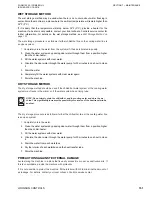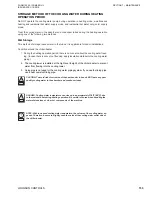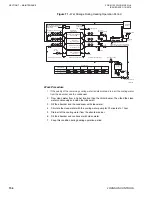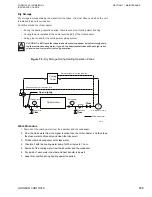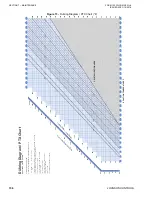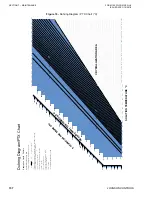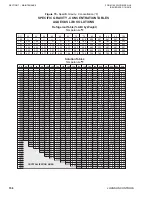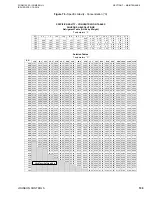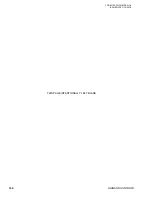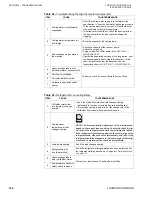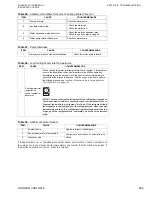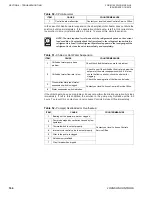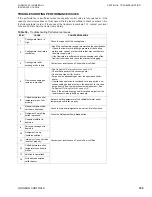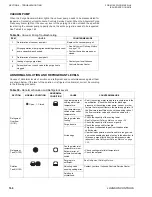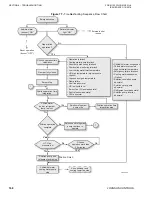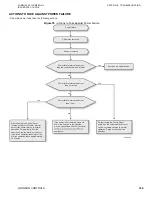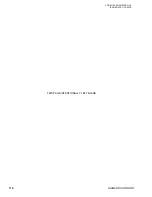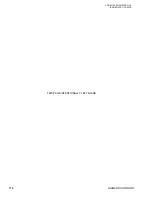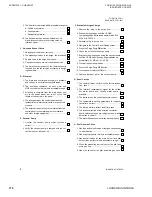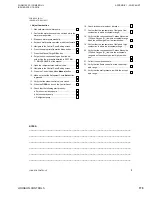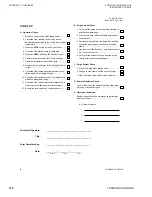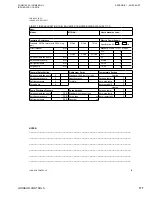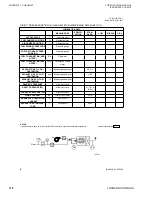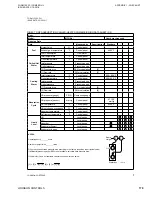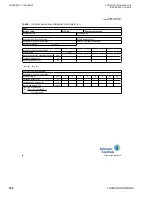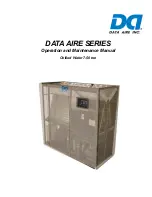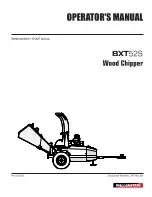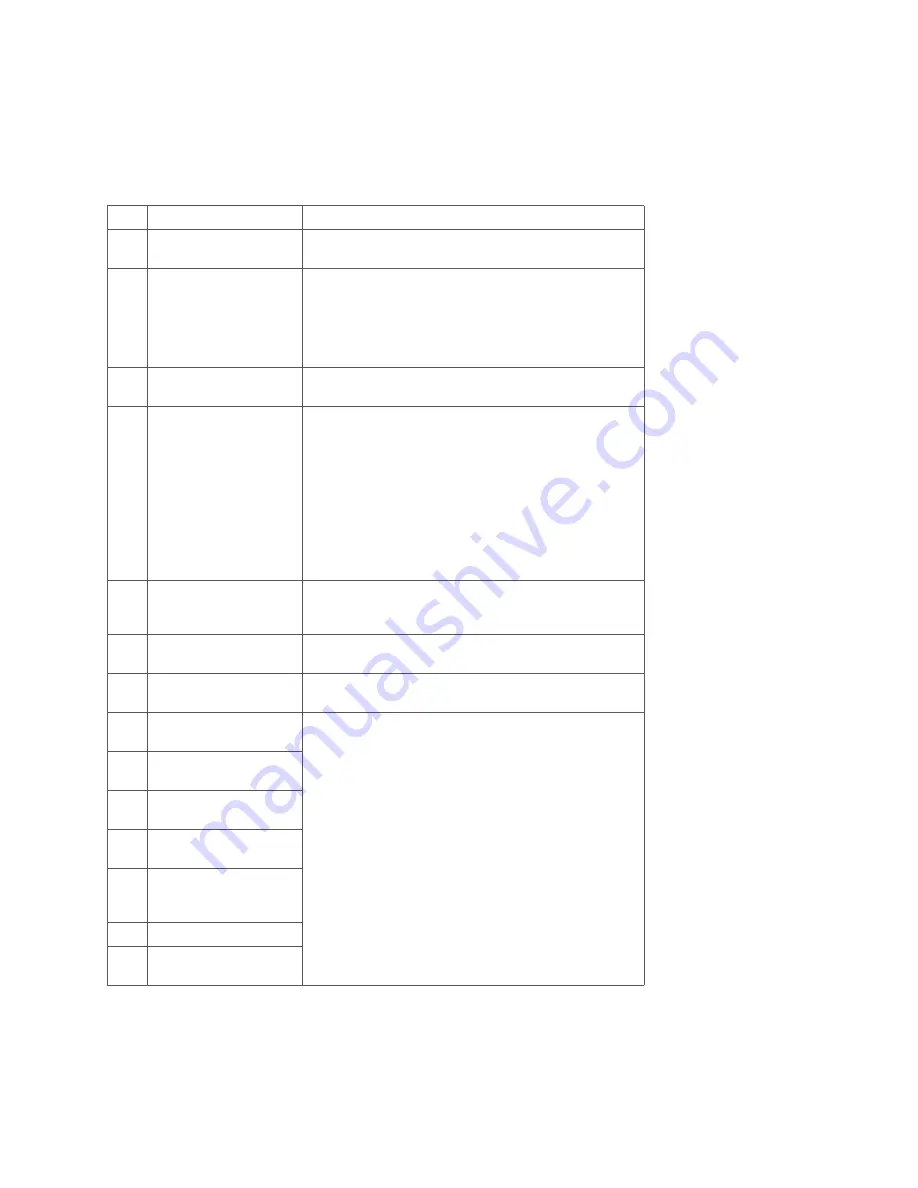
FORM 155.32-ICOM2.EN.UL
SECTION 8 – TROUBLESHOOTING
ISSUE DATE:1/10/2018
JOHNSON CONTROLS
165
TROUBLESHOOTING PERFORMANCE ISSUES
If the performance is insufficient while the capacity control valve is fully opened or if the
capacity control valve does not fully open while the load is sufficient, check numbers 1-6 in
the following table in order. If the cause of the trouble is in numbers 7-12, contact your local
Johnson Controls Service Center immediately.
Table 53 -
Troubleshooting Performance Issues
ITEM
CAUSE
COUNTERMEASURE
1
Cooling water temp. is
high.
Check the capacity of the cooling tower.
2
Cooling water flow rate is
insufficient.
• See if the cooling water supply rate matches the specification.
(Check the flow meter, discharge pressure of the cooling
water pump, current, or other factors that may contribute to
the water supply rate.)
• If the flow rate is insufficient, check the opening ratio of the
flow controller valve and check the strainer for clogging.
3
Cooling water heat
exchange tube is dirty.
Contact your local Johnson Controls Service Office.
4
Non--condensable gas
remains in machine.
• See
Refrigerant Refining Method on page 136
• Check the capacity of the vacuum pump.
• Check the purge unit for trouble.
• Purge non--condensable gas from the absorption chiller-
heater.
• If partial-load operation is continued for a long period, non--
condensable gas tends to stay in the absorber. In this case,
purge directly from the low-pressure side (absorber). See
Refrigerant Refining Method on page 136
.
• Even if the automatic purge unit is installed, purge from the
lower pressure side (absorber) manually.
5
Chilled/hot water outlet
temperature is not set
properly.
Set each setting parameter of the chilled/hot water outlet
temperature controller properly.
6
Manual refrigerant blow
valves are kept open.
Check that manual refrigerant blow valve V8 is fully closed.
7
Refrigerant Pump Stop
button is pressed.
Press the Refrigerant Pump
Auto
button.
8
Corrosion inhibitor is
depleted.
Contact your local Johnson Controls Service Office.
9
Surface active agent is
depleted.
10
Refrigerant is dirty
(contains solution).
11
Internal cycle control valve
is not set properly.
12
Chilled/hot water outlet
temperature controller is
broken
13
Solution is crystallized.
14
Air leaks in absorption
chiller-heater.

